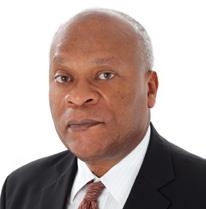
2 minute read
Roles in a Strong Community
Thriving charities are essential for a good life in a free society. They reach the parts the government and businesses do not reach. In our system, a political party gets elected, forms the government, and takes action that it sees as popular. Businesses pursue profits and private interests. If an initiative does not have a commercial value it cannot improve businesses’ bottom line – hence is not seen as a business proposition.
And yet citizens have many needs that do not fit the above scenario. Many years ago some mainly young people saw threats to our environment arising from use of dangerous pesticides and other environmentally unfriendly practices. Styling themselves Friends of the Earth they campaigned ceaselessly and eventually their cause galvanised the public mood. Now all the major political parties in the UK have become standard bearers for the green economy. What was seen as controversial has become mainstream. But it started in the voluntary sector.
Advertisement
Take another example not far from here. Government decides to expand Stansted Airport. A group of local communities who would be seriously affected by noise pollution and increased traffic formed Stop Stansted Expansion (SSE), and succeeded in halting the expansion. This airport expansion initiative would have been beneficial to business, so business would not oppose it. Major political parties supported it. It was local people who rose up, made their feeling known, raised money and ran a campaign to stop the expansion. They succeeded. Following their success SSE mothballed itself but remained ready to spring into action again should the threat re-emerge.
Government cannot deliver everything communities need, so it has to make choices. Inevitably, many needs communities have will fall outside these policy choices. But the needs do not go away. This is where local people organise and deliver services to meet their own needs such that they can enjoy a better life.
When a need has run its course the organisation that championed it can be disbanded. There is flexibility and nimbleness in organising locally.
We are blessed with having so many voluntary organisations in Hertfordshire. Their lifeblood is volunteers and money. They cannot afford to hire large numbers of staff; but large numbers of volunteers suitably led can move mountains. Their time cannot be paid for but is worth its weight in pounds and pence. They change things. They make a big difference to people’s lives. Think of the impact of local youth football teams on the lives of young children. Or day care centres on the lives of older people. Or the local hostel that provides a meal for the homeless. Meeting these needs improves the prospects of the client group. They are real needs which fall to the bottom of public policy choices; and cannot add to the corporate bottom line. So these organisations deserve all the support you and I can give.
Delbert Sandiford








